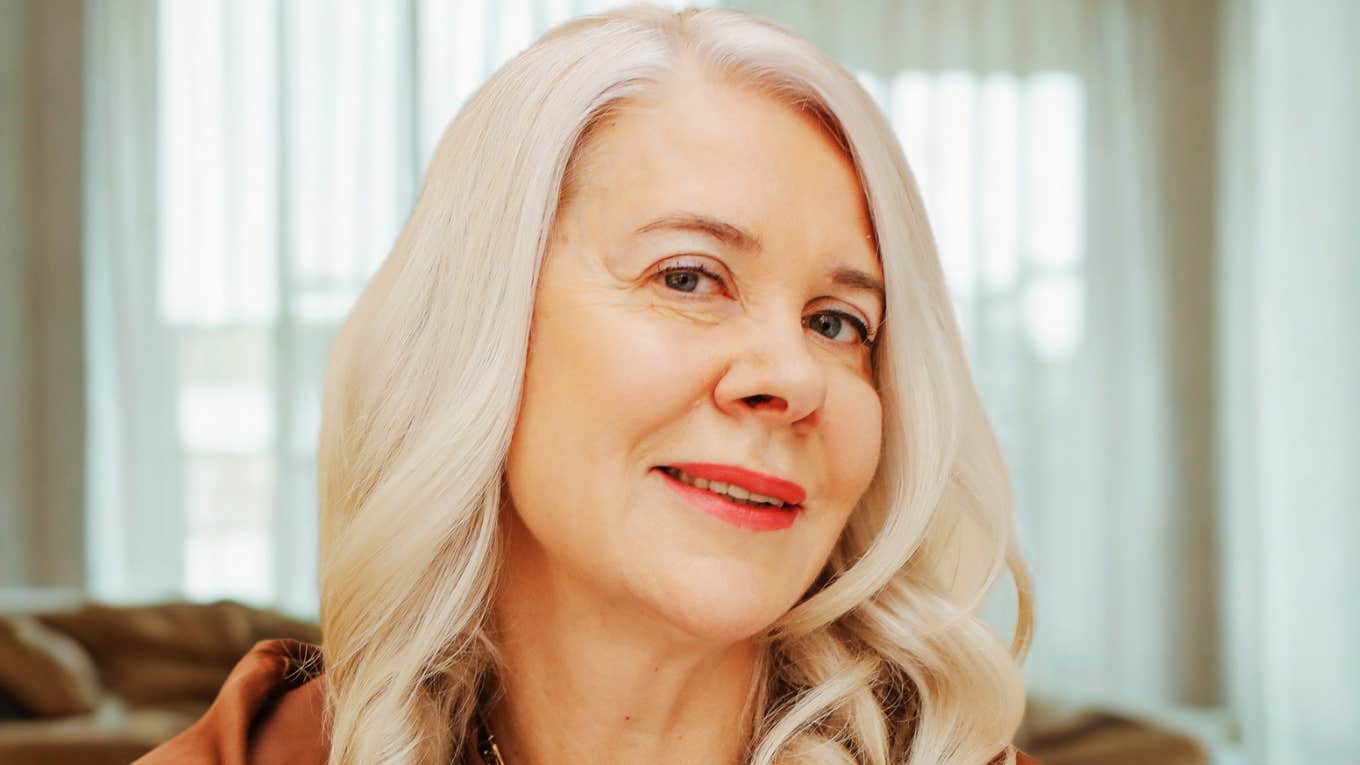People Who Still Seem Young In Their 60s And Beyond Often Swear By These 12 Little Habits
Look, and feel your best, as life goes on.
 Polina Tankilevich | Canva
Polina Tankilevich | Canva It has long been believed that life expectancy is largely, if not solely, determined by your genetics. It turns out that environmental factors, like your lifestyle and daily habits, play a greater role in how long we will live and how well we will age.
Since I was diagnosed with depression in 2007, I have developed better coping skills as I age by finding tiny things that make a big difference in managing my feelings. In the meantime, or in addition to the work you do with a qualified professional, these small habits may help you feel better, or at least help you reclaim your best self and stay young well into your 60s and beyond.
People who still seem young in their 60s and beyond often live by these little habits:
1. Keep up by tuning into podcasts
 ViDI Studio / Shutterstock
ViDI Studio / Shutterstock
One of the most important elements of staying young is managing my thoughts and keeping up. Recently, I have started to listen to podcasts. Not only do they silence any negative thoughts about aging, but they also educate me.
I don’t listen to podcasts about how to improve my life because I feel like they focus me on my mood instead of distracting me from it. Instead, I listen to podcasts about movies, "You Are Good” and women, “History Chicks” and a great one called “You’re Wrong About” which reexamines historical events and analyzes the truth behind the stories.
2. Combine Vitamin D with a great book
 Inside Creative House / Shutterstock
Inside Creative House / Shutterstock
Reading is another thing I like to do to keep my mind busy. If I can, I take my book outside and read it in the park or on my hammock. By getting outside, I add the benefit of sunshine, something proven to improve moods.
When I can’t get outside, I read under my full-spectrum light, a very effective sun substitute that gives the same effects. So, take some time and get outside with your book. You will be glad you did.
3. Destress in a warm bath
 Depiction Images / Shutterstock
Depiction Images / Shutterstock
A regular warm bath with Epsom salts, if possible, can help ease the aches and pains we get while living our lives, these aches and pains that can bring us down. Epsom salts can also increase the magnesium levels in the body, the reduction of which can be reduced by stress.
This is something I do as much as I possibly can. I add lavender or eucalyptus Epsom salts, and I soak. I bring my book along and have the added benefit of reading and shutting down my brain by doing so.
Warm baths are regarded for their ability to promote relaxation and reduce stress, potentially affecting longevity by addressing the negative health consequences of chronic stress. Studies suggest that bathing can lower levels of stress hormones and promote the release of endorphins, which positively impact mood and feelings of well-being.
4. Volunteer their time
 Yuri A / Shutterstock
Yuri A / Shutterstock
Volunteering is another thing I do regularly. For years I have worked in a soup kitchen on Thursdays and for the past decade I have volunteered with the National Alliance on Mental Illness.
Volunteering helps with two things. The first is that giving back to other people naturally increases dopamine, that feel-good chemical that courses through our body when we do something good. That feel-good chemical is an excellent way to lift our mood.
The second reason volunteering helps is that it gets me out of the house. I do tend to isolate when I am depressed, and taking a shower, getting out of the house, and interacting with people is an excellent antidepressant.
Find someplace you can volunteer, somewhere you have a genuine interest. Many of my clients find working at an animal shelter, interacting with dogs and cats, can help them in a big way.
5. Say yes to new experiences
 Cast Of Thousands / Shutterstock
Cast Of Thousands / Shutterstock
This summer, after 30 years, I returned to school. I have decided to pursue a master’s degree in history. And it has been one of the best decisions of my life. Why? Because by doing so, I am using a different part of my brain, a part of my brain that hasn’t worked for years.
Doing something new is a key way to stay youthful. Not only using a different part of your brain but experiencing things that you have never experienced before can cause dopamine to flood your body and make you feel good.
6. Snack on dark chocolate
 Ahmet Misirligul / Shutterstock
Ahmet Misirligul / Shutterstock
This isn’t a tough one, is it? I am guessing that you would be happy to do this one right now.
According to research, dark chocolate contains flavonoids, caffeine, and theobromine, all things that work together to improve mental health as you age. So, keep a bowl of dark chocolates close and indulge (within moderation) when you feel the need.
7. Invest in face-to-face friendships
 Yuri A / Shutterstock
Yuri A / Shutterstock
As people age, they tend to isolate. The prospect of going out in the world and interacting with people can sometimes feel overwhelming.
Instead of getting out of the house and trying to interact with many people, interact with one. A friend. Someone who makes you laugh and feel seen.
Spending time with people who love you and support you and who let you know they will always be there for you is one of the most potent anti-agers. I know the prospect is daunting, but pick up your phone right now and make a date to meet a friend, doing something that makes you happy.
8. Practice mindfulness through yoga or meditation
 insta_photos / Shutterstock
insta_photos / Shutterstock
Yoga and meditation have been practiced for centuries as a means to manage one’s mental health as we age. Both of these practices serve multiple purposes.
The first is that they help distract your brain, much like listening to a podcast or reading. The second is that they help improve breathing. When done consciously, breathing can be very helpful with mental health management. Thirdly, yoga and meditation can make your body strong, and strength can make you feel really good about yourself.
Meditation and yoga may also help reduce inflammation and oxidative stress, with links to improvements in cardiovascular health. Research has found that these practices can enhance mood and well-being, and might improve cognitive function, potentially reducing the risk of age-related cognitive decline.
9. Make fun a priority
 Yuri A / Shutterstock
Yuri A / Shutterstock
So many things on this list are about increasing those feel-good chemicals, and this is one of them. As we get older, fun is something that can be elusive. The idea of getting off the couch and participating in life can be overwhelming, but I would encourage you to do whatever you can to have fun.
For me, one of my favorite things to do is to watch movies and needlepoint. Some people like to dance or hike, or take an art class. All things that bring them joy.
So, what is fun for you? If getting out and doing things in the world is daunting right now, find something fun you can do at home, something that might very well pull you out of any funk.
10. Declutter their space
 JulieK2 / Shutterstock
JulieK2 / Shutterstock
Look around your space right now. How does it make you feel? Does it make you feel calm or happy, or does it cause you stress?
If your space causes you stress, I encourage you to try to declutter, to go through your things, to organize, and maybe even pitch things that you no longer use.
You don’t have to clean your whole space, unless you want to. A client of mine was =struggling and she found that just clearing off her desk space helped lift her spirits. When she sat down to use it or walked by it during the day, it gave her a sense of calmness that made a big difference in her moods.
11. Get dressed like it's a celebration
 HighKey / Shutterstock
HighKey / Shutterstock
Cowboy boots. Why? Because they make me feel good. They make me feel attractive. When I walk in them, I strut, which makes me feel strong.
Is there something in your wardrobe that makes you feel good? Put it on and see the difference. Do not put on that old, comfy sweatshirt that you settle into when you're feeling blah. Put that on the shelf and pull out something that will help you strut your stuff.
While research points to the psychological benefits of choosing clothing that makes you feel good, one article notes that there's not yet scientific backing for the idea that wearing certain clothing directly releases dopamine in the brain.
12. Smile, yawn, and laugh
 insta_photos / Shutterstock
insta_photos / Shutterstock
The Lehigh Center for Clinical Research has many recommendations for things to do to manage your mental health as we age. The one I like best was to smile, yawn, and laugh. Why?
Smiling can lower your blood pressure and reduce stress. The act of smiling has also been proven to improve your mood and increase happy thoughts. I know when my kids were little, smiling at them was a key to helping me get through my day.
Yawning helps cool down the brain and makes you feel calm.. Laughing, like smiling, can reduce your anxiety level, which will only help you manage your moods and feel happier. So, as you can see, there are little things that you can do every day to help manage your mental health and stay eternally youthful. Try them and see how they work for you.
Mitzi Bockmann is an NYC-based Certified Life Coach and mental health advocate who works exclusively with women to help them be all they want to be. Mitzi's bylines have appeared in The Good Men Project, MSN, PopSugar, Prevention, Huffington Post, Psych Central, among many others.

